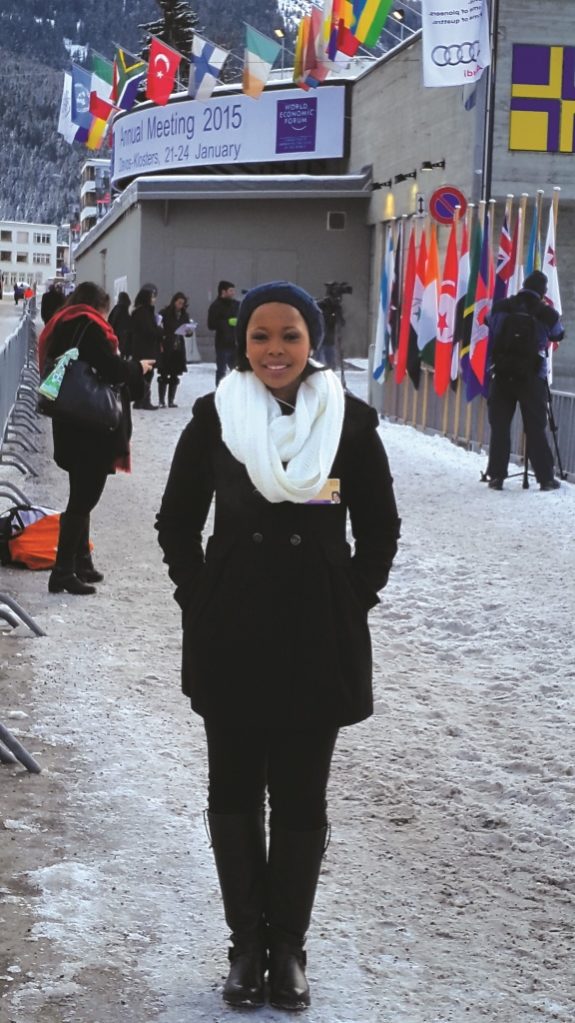The World Economic Forum (WEF) is the gold standard for every financial journalist. A long-haul flight from Johannesburg to Zurich and a short trainride later, we arrived in Davos, Switzerland, to the world’s biggest summit, ready to wire the views of influential business leaders to the world.
The big players of the global economy – from the deal-makers to the political powerhouses and movers and shakers – arrived in their smart suits to the summit’s alpine reaches, to discuss this year’s theme, A New Global Context. Here are some of the key takeaways from the Davos debates:
The European Central Bank’s bold announcement to pump in €60 billion in bonds every month to reignite growth took center stage. The world was officially in a new phase of global monetary policy divergence. The withdrawal of stimulus in the United States as the economy staggered back to its feet and this new development in Europe created interesting times for emerging markets.
In all our conversations with African leaders, what emerged was that despite the Ebola outbreak and terror attacks in some parts of the continent, Africa should still be every investor’s high-growth high-return destination. In fact, with the exception of the President of Guinea, African leaders dismissed both crises as inconsequential to Africa’s growth narrative. Displaying genius, the President of Guinea used his interview to bring the world in on the request he had made to Christine Lagarde, President of the International Monetary Fund: “Clear our debt so that we may have a fighting chance against Ebola.”
The small delegation from Nigeria, the continent’s biggest economy, did not go unnoticed. With an upcoming presidential election (mid-February), and in the midst of a tense domestic environment, this was somewhat understandable. What the forum lacked in Nigeria’s presence, South Africa more than made up for with a seven-member strong ministerial delegation. They were easily spotted in their long black coats and colorful flag-scarves. From the Finance Minister to the Governor of the Reserve Bank, the delegation put on a brave front tackling the energy crisis and lackluster take-off of the National Development Plan. The country’s public relations machine was spot on and it was evident members had clearly been put through their paces.
I couldn’t help but acknowledge that some of the delegates in attendance at Davos challenged my conventional definition of ‘world leaders’.
Also present were titans from the music world – from the legendary Andrea Bocelli to African songstress Angelique Kidjo and world-renowned hip hop producer Pharrel Williams. It was clear they were being recognized for their pulling power at such a forum.
Kidjo is credited with putting the African country of Benin on the map.
“If we want Africa to be top of mind for the world leaders here, Africans need to make Africa their priority,” she told me. Her passion for Africa’s development agenda pushed me to stretch my own perception of what leadership really is.
The small representation of women was difficult to ignore. One of this year’s co-chairs was Winfred Binyama, Executive Director, Oxfam. In an unapologetic, straight-talking style, she spoke about the world’s continued exclusion of women in positions of influence and power.
Binyama shared some of the highlights of Oxfam’s latest report saying it would take 80 years for women to balance the scales professionally with their male counterparts without the intervention of platforms like WEF.
I hope to return to Davos many more times. One can surely track at least this one indicator over a few years, but I certainly hope it’s not 80 years before we see that happening.
